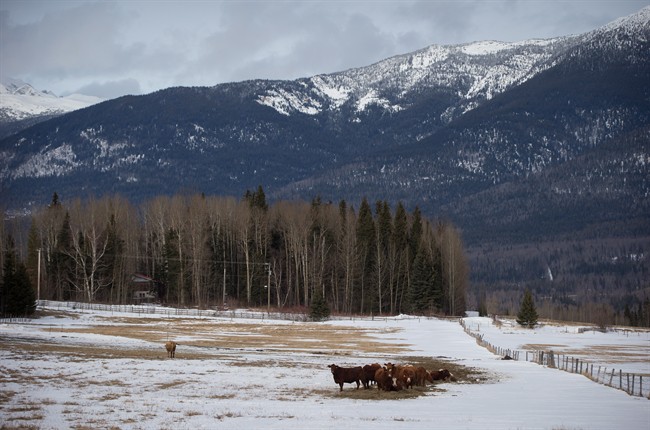A University of Alberta study says a provincial program that uses hunting licence fees to compensate ranchers when cows, sheep or goats are killed by predators also supports conservation efforts.

The predator compensation program provides money to ranchers who lose livestock to a bear, cougar, wolf or eagle.
Research published recently in the journal Environmental Management says private ranchland also provides important habitat for wildlife.
READ MORE: Conservation officers in BC gear up for busy spring
Mark Boyce, a professor in the university’s department of biological sciences, and his co-authors found that because the predator compensation program helps offset the cost of losing animals, ranchers are more willing to maintain that habitat.
But hunters aren’t always happy about where money for the program is coming from.
“There’s a lot of hunters who don’t think it’s right that revenues from the sale of hunting licences should go to subsidizing ranchers who are losing livestock to wolves and bears and cougars,” said Boyce.

Get breaking National news
“It means that there are fewer dollars for conservation programs.”
The research showed the number of hunters on private land correlates highly with compensation claims because predators also prey on the deer and elk that graze in those areas.
READ MORE: Some Alberta hunters raise concerns over park plan for Castle region
Ranchers say the research is useful for future discussions about the compensation program.
“It seems like whenever we do talk about it, the issue of cost and who pays and all the rest comes up, which is justified,” said Jeff Bectell, who’s also the co-ordinator with the carnivores and communities program at the Waterton Biosphere Reserve in southwestern Alberta.
“I would prefer when people approach this the first thing they do is look at it: Are there losses? Should there be compensation? Is it adequate? Should it be made adequate?”
Bectell said it doesn’t matter to most ranchers how the program is funded, but they all agree it could use more money.
The Alberta Conservation Association, which runs the program, said the research addresses both sets of concerns.
“The livestock owners would like to see more compensation,” said president Todd Zimmerling. “The hunters and anglers of the province would like to see other groups involved in payment for the compensation.”
Zimmerling said 52 per cent of the program is funded through the levy on hunting licences. The rest is paid by the federal government through the province.
The number of compensation claims has risen since 2000, primarily due to predation by wolves and grizzly bears. A total of $800,000 was paid out to landowners in 2015-16 — up from about $100,000 in 2000.

Comments